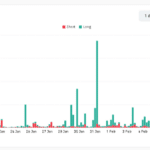WASHINGTON, Jan 19 (Reuters)
Reporting by Lisa Lambert
The stimulus plan the U.S. government is currently considering is necessary to help American citizens, but it will likely not reverse the country's economic decline, hedge fund manager and billionaire philanthropist George Soros said on Monday.
"It is not enough to turn the situation around," Soros told the U.S. Conference of Mayors about the $850 billion proposal to increase spending and cut taxes.
The $700 billion financial bailout known as TARP for Troubled Assets Relief Program had been carried out in a "haphazard and capricious way" and "without proper planning," he said.
"Unfortunately it was misused and the way it it was done has poisoned the well. It has created tremendous ill will toward putting up more money," Soros said.
Soros advocated using bailout money to recapitalize banks, but said the $350 billion would not be enough. He said such a move would take more than the entire $700 billion.
The bursting housing bubble "acted like a detonator that exploded a much larger bubble," he said.
The economies of the world are falling off a cliff. This is a situation that is comparable to the 1930s. And once you recognize it, you have to recognize the size of the problem is much bigger.
Soros said the United States needed "radical and unorthodox policy measures" to prevent a repeat of the Great Depression of the early 20th century that include recapitalizing banks and writing down the country's accumulated debt.
Also, he said, it should create more money to offset the collapse of credit and then rapidly pull that cash out of the system when inflation emerges. The government would have to be very nimble in the timing of such moves, he said.
"If they are successful...the deflationary pressures will be replaced by the specter of inflation and the authorities will have to drain the excess money from the economy almost as quickly as they pumped it in. Of the two operations the second one is going to be, politically, even more difficult than the first," he said.
Thursday, January 22, 2009
Subscribe to:
Post Comments (Atom)



No comments:
Post a Comment